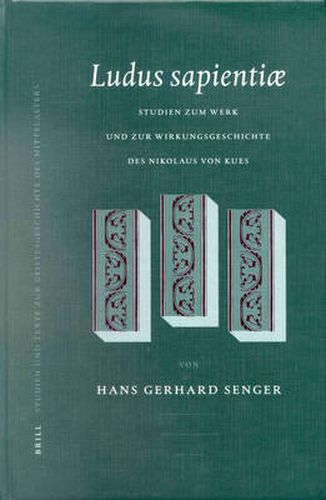Readings Newsletter
Become a Readings Member to make your shopping experience even easier.
Sign in or sign up for free!
You’re not far away from qualifying for FREE standard shipping within Australia
You’ve qualified for FREE standard shipping within Australia
The cart is loading…






This volume contains 3 papers published here for the first time as well as 13 studies from the years 1979-2001 in revised and in part expanded form. The themes cover in 5 sections (I) Cusanus in his time (1401- 1464), (II) his oeuvre and individual treatises (De concordantia catholica, De docta ignorantia, De ludo globi), (III) his sources (from antiquity, Patristics - in particular Ps.-Dionysius - and the Renaissance) and (IV) three studies on his reception. The volume ends with an appendix with two detailed interpretations of Juan Luis Vives’ Fabula de homine and of Jorge de Sena’s poem De docta ignorantia. The material at the focus of discussion includes questions of Cusanus’ metaphysics, ethics and axiology, his doctrines of time and eternity and his philosophy of language and his method. A bibliography and indices of names and places conclude the volume.
$9.00 standard shipping within Australia
FREE standard shipping within Australia for orders over $100.00
Express & International shipping calculated at checkout
This volume contains 3 papers published here for the first time as well as 13 studies from the years 1979-2001 in revised and in part expanded form. The themes cover in 5 sections (I) Cusanus in his time (1401- 1464), (II) his oeuvre and individual treatises (De concordantia catholica, De docta ignorantia, De ludo globi), (III) his sources (from antiquity, Patristics - in particular Ps.-Dionysius - and the Renaissance) and (IV) three studies on his reception. The volume ends with an appendix with two detailed interpretations of Juan Luis Vives’ Fabula de homine and of Jorge de Sena’s poem De docta ignorantia. The material at the focus of discussion includes questions of Cusanus’ metaphysics, ethics and axiology, his doctrines of time and eternity and his philosophy of language and his method. A bibliography and indices of names and places conclude the volume.